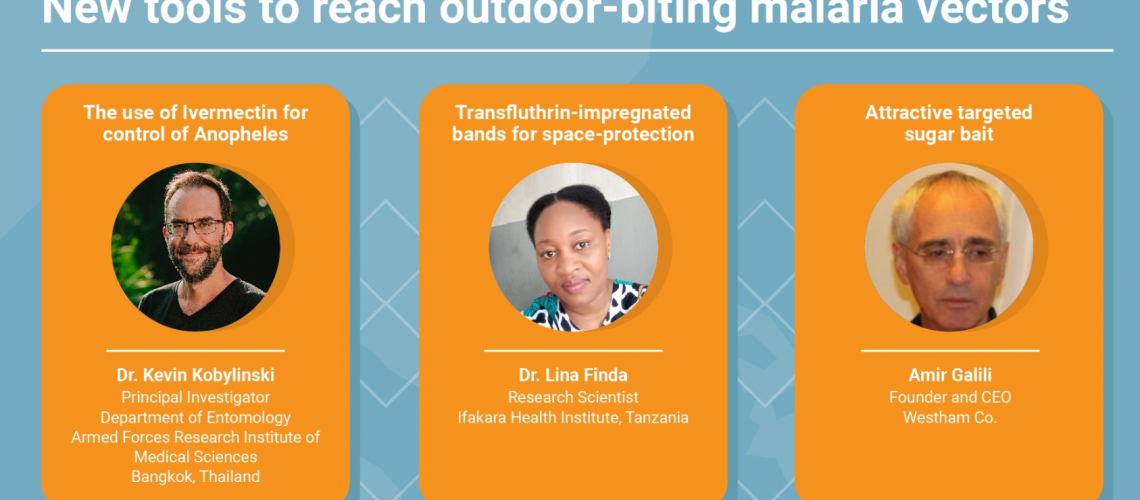
Since time immemorial, insecticide-treated nets and indoor residual spraying have been the two main measures deployed for malaria vector control. In the Asia Pacific, pre-eliminating countries often face residual malaria that results from outdoor transmission. New methods that reduce contact between human populations and vectors outside the home are essential in addressing outdoor-biting Anopheles mosquitoes.
On July 29, 2020, the APMEN Vector Control Group (VCWG) hosted another APMEN TechTalks that featured interesting work in Africa and the Greater Mekong Subregion (GMS) on some of the potential options for outdoor malaria transmission.
Dr. Kevin Kobylinski from the Armed Forces Research Institute of Medical Sciences (AFRIMS) in Bangkok, Thailand shared his diverse experience in understanding the use of Ivermectin, a common drug used against human neglected tropical diseases, to control Anopheles in the context of Southeast Asia. Malaria transmission in the GMS is quite different from African settings, as most malaria vectors are outdoor-feeding, outdoor-resting or feed on human’s blood before bedtime – characteristics which render traditional vector control methods less effective in preventing mosquito bites. Ivermectin is a systemic endectocide (i.e. works against internal and external parasites) that targets Anopheles vectors regardless of feeding location and time.
Lina Finda, a researcher from the world-renowned Ifakara Health Institute in Tanzania presented the diverse applications of transfluthrin, a fast-acting pyrethroid insecticide. She featured field trials focusing on how transfluthrin, when applied to common products that people use daily (e.g. chairs, sandals, housing materials), have demonstrated protection against indoor- and outdoor-biting mosquitoes in her country and potentially so in the Asia Pacific.
Last but not least, Amir Galili showcased his company’s work on attractive targeted sugar baits, which is currently being validated for malaria vector control in Africa. The ATSB method is based on the mosquitoes’ drive to feed on sugar for energy before they search for a blood meal and is deemed to be highly effective and can minimize widespread insecticide dissemination.
This webinar was followed up by the second Malaria GameChangers roundtable discussion entitled ‘Vector Control Tools for Asia Pacific’.
You may revisit this APMEN TechTalks webinar through the following:
Access the recording HERE.
Download the speakers' presentations HERE
